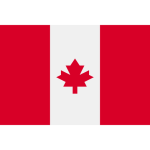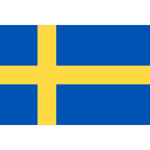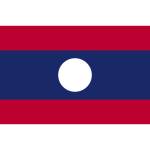Blog
Canada Immigration
If you aspire to immigrate to Canada on a Permanent Resident (PR) basis and settle there, understanding the Canadian PR process is crucial. Before applying, it's important to explore the opportunities available for you and your family in Canada.
What is a Canada PR Visa?
A Canada PR visa allows immigrants to live and work in Canada indefinitely without any time restrictions on their residency. To obtain a Canadian PR visa, applicants must apply to Immigration, Refugees, and Citizenship Canada (IRCC) and be granted Permanent Resident status.
Benefits of Canada Permanent Residency
Obtaining Canada Permanent Residency (PR) offers individuals and their families a pathway to establish themselves in one of the world's most desirable countries. As a Permanent Resident, you have the right to live and work anywhere in Canada indefinitely, enjoying nearly all the same rights and privileges as Canadian citizens, except for voting rights in federal elections. This status provides stability and security, allowing individuals to build their careers and contribute to Canadian society without the concern of visa renewals or time limits on their stay.
In addition to residency rights, PR holders benefit from access to Canada's comprehensive social services. This includes healthcare coverage under Canada's publicly funded healthcare system, which ensures access to essential medical services at little to no cost. Education is another significant advantage, as children of PR holders have access to free education up to high school level and subsidized post-secondary education, opening doors to academic and career opportunities.
Permanent Residency also serves as a stepping stone towards Canadian citizenship. After meeting residency requirements, PR holders can apply for citizenship, which grants additional rights such as the ability to vote in federal elections and enhanced mobility benefits. Legal protections are robust under Canadian law, ensuring that all individuals, regardless of their background, are treated fairly and have access to fundamental rights guaranteed by the Canadian Charter of Rights and Freedoms.
Canada's commitment to multiculturalism and diversity further enriches the experience of Permanent Residents. The country embraces people from all cultures, religions, and backgrounds, fostering an inclusive society where everyone can thrive and contribute to its dynamic social fabric. Family reunification is facilitated through the family sponsorship program, allowing PR holders to sponsor eligible family members to join them in Canada, promoting strong family ties and support networks.
Economically, Canada offers a strong and diversified economy with abundant job opportunities across various sectors. Whether in technology, healthcare, natural resources, or finance, PR holders can pursue their careers in a stable and supportive environment known for its high standard of living. Overall, Canada's quality of life consistently ranks among the best globally, thanks to its excellent healthcare, education systems, safety, and overall well-being, making it an attractive destination for individuals seeking a better future for themselves and their families.
How to apply for Canada PR Visa from India?
To apply for a Canada PR Visa from India, there are two main pathways available:
Express Entry Program: The Express Entry system allows applicants to apply for Canadian PR online by meeting specific eligibility criteria. These criteria typically include factors such as age, education, work experience, and language proficiency in English or French. Candidates create an online profile in the Express Entry pool and are ranked based on their Comprehensive Ranking System (CRS) score. Those with high CRS scores are regularly invited to apply for PR through regular draws conducted by Immigration, Refugees, and Citizenship Canada (IRCC).
Provincial Nominee Program (PNP): The Provincial Nominee Program enables Canadian provinces and territories to nominate individuals who have the skills, education, and work experience needed to contribute to the economy of a specific province or territory. Each province and territory has its own streams and criteria aligned with its economic needs and priorities. Applicants must meet the eligibility requirements of the PNP stream they apply to, which may include having a job offer from an employer in the province, meeting specific work experience criteria, or having studied in the province.
Both pathways offer opportunities for skilled workers, professionals, and entrepreneurs to obtain Canadian PR status. The Express Entry Program provides a streamlined and points-based system for skilled workers, while the PNP allows provinces and territories to select candidates who can fill specific labor market needs.
It's essential for applicants to thoroughly understand the requirements of each pathway, prepare all required documents accurately, and ensure they meet the criteria before submitting their PR application. Seeking assistance from a qualified immigration consultant can help navigate the process smoothly and increase the chances of a successful application.
Time Spent Living in Canada:
To become a Canadian citizen, you must first obtain Canadian Permanent Residency (PR) and live in Canada for at least three years. Canada, a member of the G8 and the OECD (Organization for Economic Cooperation and Development), offers abundant financial and job opportunities, contributing to its strong economy. The country’s service industry is a significant component of its employment sector, and international trade continues to bolster Canada's economic standing globally.
As a democratic nation, Canada upholds the rights and freedoms of its citizens, as enshrined in the Canadian Charter of Rights and Freedoms. This Charter guarantees comprehensive human, democratic, legal, mobility, language, and political rights to all individuals residing in Canada. The Canada PR Visa provides a pathway to these rights, ensuring that residents are well-protected and have the freedom to contribute to Canadian society.
Documents Requirement for Canada PR Visa from India?
When applying for a Canada PR Visa from India, compiling the necessary documents is crucial as they form the backbone of the immigration process. Ensuring all documents are accurate and submitted promptly after receiving an Invitation to Apply (ITA) is essential to avoid delays or complications that could jeopardize the application. Seeking guidance from a professional immigration consultant can provide valuable assistance in navigating this intricate process effectively.
Key documents required for a Canada PR Visa application typically include:
- Firstly, educational credentials are vital, including certificates and transcripts for 10th grade, 12th grade, Bachelor’s degree, and Master’s degree. Additionally, candidates need an Educational Credential Assessment (ECA) report for degrees obtained outside Canada, along with their language proficiency test results, such as IELTS, CELPIP, or TEF, consolidated into a single PDF.
- Secondly, employment records play a crucial role. This involves providing letters of reference from current and previous employers, along with documents supporting employment history, such as promotion letters, increment letters, and payment slips for the past three months. All these documents should be organized into a single PDF file for clarity and ease of submission.
- Proof of financial stability is another critical requirement. Applicants must demonstrate sufficient funds to support themselves and their dependents in Canada. This includes bank statements, bank certificate letters, fixed deposit certificates, Public Provident Fund (PPF) statements, and Income Tax Returns (ITRs) for the past two years, consolidated into a single PDF.
- If applying through a Provincial Nominee Program (PNP), candidates must include a Provincial or Territory Nomination Certificate, if applicable, to substantiate their application.
- Marital status documentation, such as a marriage certificate (if married) and documents related to divorce or legal separation consent (if separated), should also be included as part of the application package.
Moreover, a copy of the personal passport, encompassing all pages of current and previous passports (if applicable), should be provided in a single PDF format.
Lastly, medical certification and any additional documents requested by the immigration authorities should be included to ensure comprehensive submission of all required materials.
By meticulously gathering and reviewing these documents, applicants can enhance their chances of a successful Canada PR Visa application, moving closer to achieving their goal of permanent residency in Canada.
What are the pathways to getting PR in Canada from India?
There are several pathways for Indian nationals to obtain permanent residency (PR) in Canada, each catering to different circumstances and qualifications:
Express Entry Program: Launched in 2015, the Express Entry system manages applications for three key economic immigration programs: Federal Skilled Worker Program, Canadian Experience Class, and Federal Skilled Trades Program. Applicants create an online profile and are ranked using the Comprehensive Ranking System (CRS), which evaluates factors like age, education, work experience, and language proficiency. Candidates with high CRS scores receive Invitations to Apply (ITAs) for PR from Immigration, Refugees, and Citizenship Canada (IRCC).
Provincial Nominee Program (PNP): The Provincial Nominee Program allows Canadian provinces and territories to nominate individuals who meet specific regional labor market needs. Each province and territory has its own PNP streams with unique criteria and eligibility requirements. Candidates nominated through a PNP stream receive additional points towards their Express Entry CRS score, enhancing their chances of receiving an ITA.
Quebec Skilled Worker Program (QSWP): Quebec, unlike other provinces, has authority over its immigration policies and operates its own immigration programs separate from Express Entry. The Quebec Skilled Worker Program is designed for skilled workers intending to settle in Quebec based on factors such as education, work experience, language proficiency, and other criteria set by the province.
Study Visa Pathway: Studying in Canada offers an indirect pathway to PR for international students. After completing a qualifying program at a Canadian educational institution, graduates may be eligible for a Post-Graduation Work Permit (PGWP). Gaining Canadian work experience through the PGWP can enhance eligibility for permanent residency under various immigration streams.
Start-up Visa Program: Designed for entrepreneurs with innovative business ideas, the Start-up Visa Program facilitates the establishment of new businesses in Canada. Applicants must secure support from designated Canadian organizations and meet criteria related to business ownership, job creation, and operational management to qualify for PR.
Family Sponsorship Visa: Family reunification is another significant pathway to Canadian PR. Canadian citizens and permanent residents can sponsor eligible family members, including spouses, common-law partners, parents, and dependent children, to immigrate to Canada. Sponsors must meet financial sponsorship requirements to support their family members upon arrival in Canada.
These pathways offer diverse opportunities for Indian nationals to immigrate to Canada permanently, depending on their qualifications, skills, and personal circumstances. Each pathway has specific requirements and processes that applicants must fulfill to successfully obtain Canadian PR status.
Canada PR Point Requirements from India
To receive an Invitation to Apply (ITA) for Canadian Permanent Residency through the Express Entry system, candidates must score a minimum of 67 points out of 100 based on various factors including age, work experience, language proficiency, education, and adaptability. Immigration, Refugees, and Citizenship Canada (IRCC) conducts bi-weekly draws where eligible candidates with high Comprehensive Ranking System (CRS) scores are invited to apply.
In recent updates, it was reported that approximately 64,315 applicants were invited for Canadian Permanent Residency. The CRS scores of these invited candidates ranged between 451 and 500 points. These scores indicate the competitive nature of the Express Entry system, where higher scores significantly increase the chances of receiving an ITA.
This points-based system aims to select candidates who are most likely to successfully integrate into the Canadian labor market and contribute to the economy, reflecting Canada's ongoing need for skilled workers and professionals across various industries. Candidates can improve their CRS scores by enhancing their qualifications, work experience, language proficiency, and other factors outlined in the eligibility criteria, thereby increasing their chances of receiving an ITA for Canadian PR.

 Canada
Canada Luxembourg
Luxembourg Uk
Uk Finland
Finland Ireland
Ireland Sweden
Sweden Italy
Italy Australia
Australia Dubai
Dubai Laos
Laos Armenia
Armenia Newzealand
Newzealand